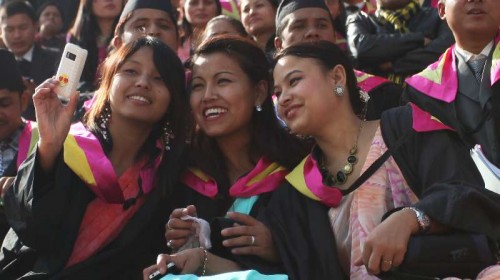 By Hadra Ahmed
By Hadra Ahmed
As the Ethiopian government works towards revitalising higher education to meet growing demand by boosting investment in education under the country’s Growth and Transformation Plan (GTP), India, with its long experience in the education sector, could help invest in Ethiopia, officials state.
This was stated at a three-day international seminar on “India and Africa: Developmental Experiences and Bilateral Cooperation”, and the Sixth Doctoral Scholar International Conference in African Studies that started here Monday.
The three-day seminar is being organized by the Wolkite University of Ethiopia in collaboration with the Policy Research Institute of African Studies Association (PRI-ASA) of India and the Centre for African Studies, Jawaharlal Nehru University (JNU).
“This seminar can contribute ideas or innovations in this field so that we can incorporate this officially to the second phase of the GTP that we are now preparing”, Admasu Shibru, president of Wolkite University, told IANS.
“It is very important for us to realise the educational vision and transform the socio-economic situation of this country even as we are trying to benchmark all possible innovations in terms of developing each sector.”
The seminar under the theme of “Development, Diaspora and International Relations of African Countries” is being attended by academicians from India as well as the business community, civil society organisations and NGOs from Ethiopia.
“The very important thing that we are doing today is establishing the collaboration so we are just starting and once it is established we have to continue strengthening by shaping the partnership strategies that we are going to have,” Shibru further stated.
“This conference that has brought experts from across the world will explore the various faces of their bilateral cooperation from different paradigms,” said Aparajita Biswas, president of ASA, Mumbai.
“It is not only contributing to the global discourse on India and Africa but it will hopefully alter the existing narratives of this complex relation,” she said.
“This initiative is certainly the beginning of a fruitful relationship between ASA India and Wolkite University as we can work together for an enriching partnership to promote the exchange of the knowledge and people across the Indian ocean.”
India is known for its knowledge economy, it is known for its contribution to the world economy in areas of knowledge in modern science and technology and in social science and literary writing, says Dubey, director of Centre for African Studies, University of Mumbai.
“Exposing them to African countries and establishing interaction with them will enrich their own experience as well as give access to African academics and help postgraduate students link up and see developing countries’ academics how they are seeing the world and how the situations are in similar paradigms,” he said.
“Different countries were confronting almost similar issues of development, proper action in healthcare and negotiating globalisation from a developing country’s perspective”.
According to Dubey, India’s policy on Africa needs to first look at the basic educational sectors. “As a knowledge-based economy, our scientists, our academicians, and our literary writers are making a difference all over the world. Therefore, it gives an opportunity to share this experience with Africa and the world”, he asserted.
This seminar that has so far been organized every two years was previously held in Kenya along with the University of Nairobi and in Durban, South Africa.
“Seminars like this have the power to fill the serious lack of academic interaction amongst academicians and scholars of India and Africa,” a participant of the seminar told IANS.
“This seminar is expected to come up with long term and sustainable partnership with India and Ethiopia and Africa in general. Then this will bring about sharing of all sorts of technologies, skills, innovations of all kinds which could help us improve our education quality.”